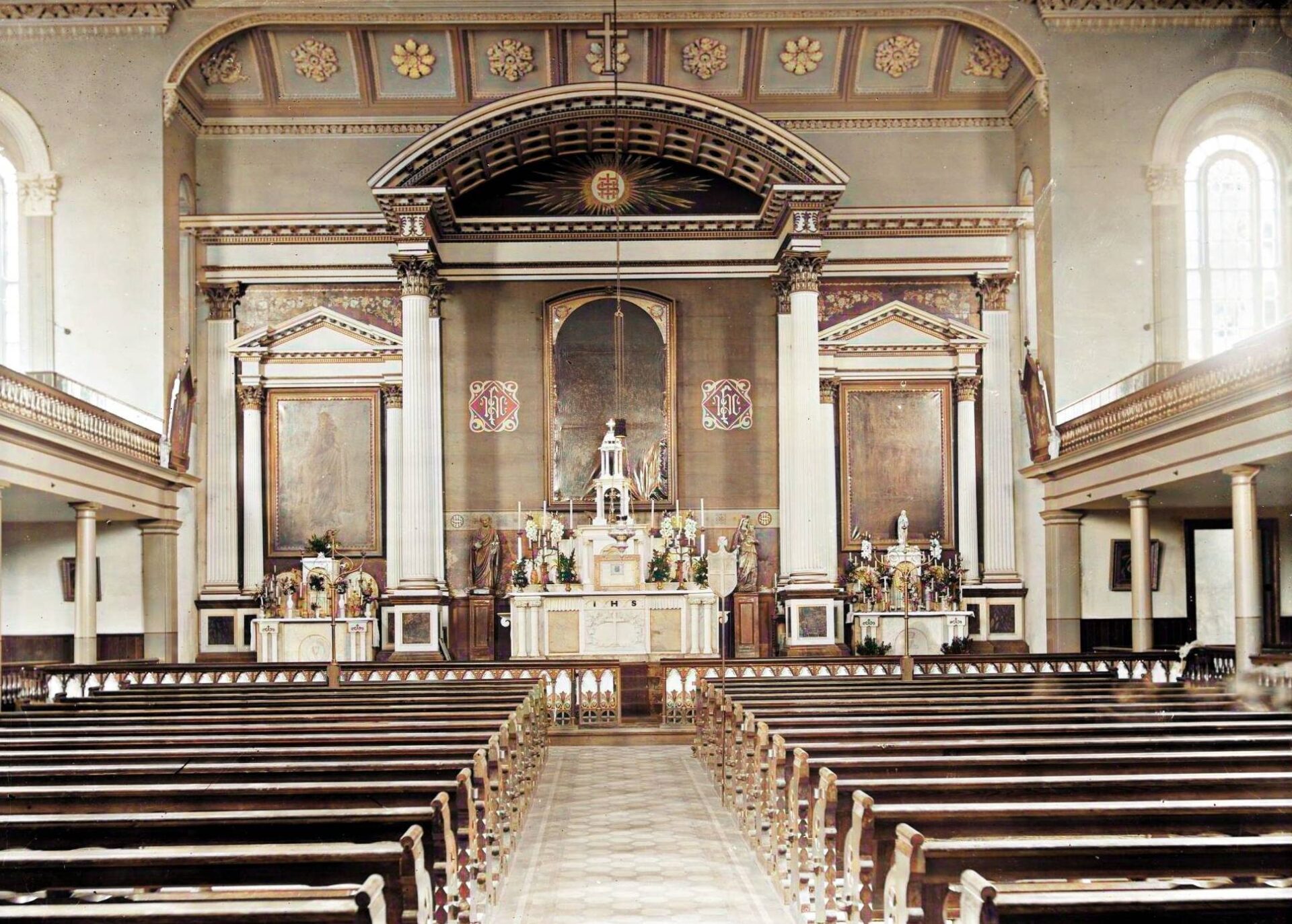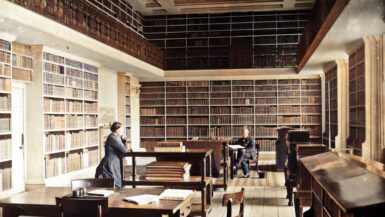If you’re embarking on the fascinating journey of tracing your Irish roots, it’s crucial to understand the importance of parish records in Irish genealogy research. Parish records have long been considered one of the most vital sources of information for Irish family historians, providing a wealth of data on the lives of our ancestors. This guide will delve into the significance of parish records, the Irish parish system, and how to access and interpret these essential resources.
Understanding the Irish Parish System
The Irish parish system is deeply rooted in the country’s history, with both civil and ecclesiastical parishes playing a pivotal role in the lives of the Irish people. Civil parishes originated in the medieval period and were used for various administrative and taxation purposes. Ecclesiastical parishes, on the other hand, were established by the Catholic Church and the Church of Ireland and served as the primary centers for religious worship and community life.
Both types of parishes maintained their own set of records, which are invaluable for genealogy research. For the purposes of this article, we will focus on the ecclesiastical parish records, as they are the most commonly used and reliable sources for Irish genealogy.
The Role of Parish Records in Irish Genealogy
Parish records are vital to Irish genealogy research because they predate the majority of other available records. The earliest surviving Irish parish registers date back to the 16th century, with many more starting in the 18th and 19th centuries. These records provide a unique insight into the lives of our ancestors, often containing information on births, marriages, and deaths – the key events that shape a family tree.
By studying parish records, you can trace the movements of your Irish ancestors, learn about their occupations and social status, and even discover family connections and relationships. Additionally, these records can help fill in the gaps left by other sources, such as the loss of the 19th-century Irish census records in the 1922 fire at the Public Record Office.
Types of Parish Records in Ireland
There are three main types of parish records in Ireland, each offering unique insights into the lives of your ancestors:
Baptism Records
Baptism records are perhaps the most crucial source of information for Irish genealogy research, as they predate civil registration of births, which began in 1864. These records typically include the child’s name, baptism date, parents’ names, and sometimes the names of the godparents, which can help establish family connections. Additionally, baptism records may provide clues about the family’s residence and the father’s occupation.
Marriage Records
Mariage records can be a goldmine for Irish genealogy researchers, as they often contain details about the couple’s names, ages, residences, occupations, and parents’ names. In some instances, marriage records may also include the names of witnesses, which can lead to discovering extended family connections. Marriages were usually recorded in the bride’s parish, so these records can help trace a family’s geographical movements.
Burial Records
Burial records are the least common type of Irish parish records, as many parishes did not maintain them consistently. However, when available, they can provide valuable information about your ancestors’ deaths, including the date of burial, age at death, and sometimes the cause of death. In some cases, burial records may also mention other family members, offering further clues for genealogy research.
Locating and Accessing Irish Parish Records
While Irish parish records are indispensable for genealogy research, accessing them can be challenging due to their fragmented nature and varying levels of availability. The following resources and strategies can help you locate and access the parish records you need:
Online Resources
Many Irish parish records have been digitized and made available online, making it easier than ever to access these vital sources of information. Some popular online resources for Irish parish records include:
- National Library of Ireland (NLI): The NLI has digitized its entire collection of Catholic parish registers, making them freely available online.
- RootsIreland: This subscription-based website offers a comprehensive database of indexed parish records from various denominations, including the Church of Ireland, Presbyterian, and Methodist churches.
- IrishGenealogy.ie: This free government-run website provides access to indexed Church of Ireland, Catholic, Presbyterian, and Methodist parish records from selected areas in Ireland.
- Ancestry.com and Findmypast: These subscription-based genealogy websites also have extensive collections of Irish parish records, with a focus on the Church of Ireland registers.
Irish Archives and Libraries
If the records you seek are not available online, you may need to visit archives and libraries in Ireland that hold original parish registers or microfilm copies. Key repositories include the National Archives of Ireland, the Representative Church Body Library, and various diocesan and county archives.
Transcriptions and Indexes
In some cases, parish records have been transcribed or indexed by genealogy societies, local historians, or volunteers. These transcriptions and indexes can be invaluable resources for locating records, and they are often available in print or online.
How to Read and Interpret Irish Parish Records
Once you have located the parish records relevant to your Irish genealogy research, it’s essential to know how to read and interpret them. Keep in mind that parish records were usually written in Latin, so you may need to familiarize yourself with common Latin terms and phrases used in these records. Additionally, be prepared for variations in spelling and abbreviations, as well as inconsistencies in record-keeping practices.
When interpreting parish records, consider the following tips:
- Cross-reference the information with other sources, such as civil registration records or census returns, to verify the accuracy of the data.
- Pay attention to the names of witnesses and godparents, as they may be relatives or close family friends who can help you uncover additional family connections.
- Be open to the possibility of errors or omissions in the records, and be prepared to revise your conclusions as new evidence emerges.
The Challenges of Irish Genealogy Research Using Parish Records
While parish records are essential for Irish genealogy research, they also present several challenges:
- Incomplete or missing records: Many Irish parish records have been lost or destroyed over time, leaving gaps in the available information.
- Legibility: Handwriting in older records can be difficult to read, making it challenging to interpret the information accurately.
- Language barriers: As mentioned earlier, many parish records were written in Latin, which can be difficult for modern researchers to understand without some knowledge of the language.
- Inconsistent record-keeping: The quality and detail of parish records can vary significantly, depending on the parish and the individual who maintained the records.
Despite these challenges, parish records remain a crucial resource for uncovering the rich tapestry of your Irish ancestry.
Tips for Successful Irish Genealogy Research
To make the most of your Irish genealogy research using parish records, consider the following tips:
- Start with what you know: Gather as much information as possible about your ancestors from family members, photographs, and existing records before diving into parish records.
- Be flexible with spellings and name variations: Spelling was often inconsistent in the past, so be prepared to search for alternate spellings and variations of your ancestors’ names.
- Keep organized records: As you uncover new information, maintain detailed notes and create a system for organizing and preserving your findings.
- Collaborate with other researchers: Connecting with other genealogists researching the same area or surname can help you uncover additional resources and share knowledge.
- Be persistent and patient: Irish genealogy research can be challenging, but with perseverance and dedication, you can successfully uncover your family’s history.
In conclusion, parish records are an invaluable resource for Irish genealogy research, offering unique insights into the lives of our ancestors. By understanding the importance of these records, mastering the skills needed to access and interpret them, and overcoming the inherent challenges, you can unlock the stories of your Irish heritage and preserve them for future generations.






Is there some way to differentiate between RC and Protestant records? I am not from Ireland and I don’t understand the parish system. There seem to be assumptions built into this that the local people would know automatically which is which, but these days many people in the Irish Diaspora aren’t religious at all. Some records show just the name location one or two parents and date of birth but nothing to indicate to a non-Irish person which church. There are also some repeats of names to make it even more confusing. So, how do you know if a record is Catholic or Protestant? Thanks!